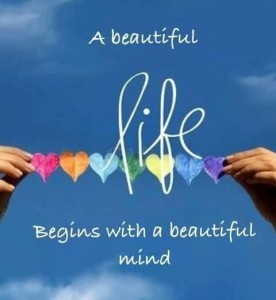
5 reasons why Mindfulness is our biggest hope for Organizational and Social Change.
“The quality of our attention determines the quality of our results”, argues Otto Scharmer, a renowned senior MIT lecturer, writer and organizational consultant (and I believe a future Nobel laureate in Economic Sciences). In a VUCA world (volatile, uncertain, complex and ambiguous) everyone is demanding more and better results, but what we normally see happening is the opposite. Our hyper-connected and high-speed living is making us, human beings, more and more stressed, superficial and struggling to deliver “those” better results. Moreover, we are collectively creating results that nobody wants, putting in jeopardy our health (there are 3 times more people dying in the world because of suicide than murderer, war and natural disasters combined), our society (there are 2.5 billion people living below the poverty line) and our planet (we are consuming on average 1.5 planet Earth while, of course, we only have one).
So, how can we then invert this tendency? How can we help people to rescue their awareness? How can we create a “new world”, one that is more healthy, more equitable, and more eco-friendly? How can we collectively create conditions for each human being to manifest their Self (with capital S) and their Work (with capital W), contributing, in that way, to a better world for all of us?
I really believe that the answer lies in a technique that is over 2.500 years old: mindfulness meditation.
“Wait a minute”, you may be thinking, “are you saying that the problems of the world can be solved by “doing nothing”?”. Before you think I’m crazy and stop reading, please bear with me for just a few more lines.
Mindfulness is now a mainstream movement reaching several spheres of our society.
As I’m writing this text (Feb 2014) Mindfulness is reaching a tipping point in western society, appearing exclusively on the cover of TIME magazine, with the title of “The Mindful Revolution”. From a practice that some years ago was only restricted to some religious, “new age” or esoteric groups, it is now being used in different “mainstream” arenas like:
– science (e.g. neurosciences, interpersonal neurobiology, epigenetics);
– health (e.g. Harvard Medical School, Massachusetts General Hospital, Mount Sinai Hospital);
– corporations (e.g. Google, General Mills and even the US Army);
– leadership (e.g. Bill George – Medtronic’s CEO; Steve Jobs – Apple’s ex-CEO; Arianna Huffington – Huffington Post’s President and Editor-in-chief; Bill Ford – Ford Motor Company’s Executive Chairman, among many others that recently “came out of the closet”)
– education (not only in hundreds of schools around the world but even in “cutting-edge” leadership training places like MIT Sloan Leadership Center, Weatherhead School of Management or Harvard Business School);
– sports (US Olympics Gymnastic team; NFL Seahawks and even, Phil Jackson, the NBA trainer that guided Michael Jordan’s Chicago Bulls and Kobe Bryant’s LA Lakers to several triumphs shared recently that one of the most important parts of their trainings was mindfulness);
– politics (e.g. Mindfulness is now offered to U.K. parliament staff; U.S. congressman Tim Ryan’s proposal for a “mindful nation”);
– high finance (e.g. Davos World Economic Forum 2014 had more than 25 sessions about mindfulness and wellbeing);
– media (e.g. TIME Magazine, Huffington Post, Forbes, New York Times, The Economist, WIRED, Fast Company, etc.)
First things first: aligning ourselves
Before we talk about why this (r)evolution is happening, let us define what we mean by mindfulness.
A simple way to describe it, using the words of Richard Boyatzis, from Case Western Reserve University, is to “be awake, aware and attentive”. Basically being here, now, totally present in the moment. Jon Kabat-Zinn, Executive Director of the Center for Mindfulness in Medicine, Healthcare, and Society (University of Massachusetts Medical School) and one of the main responsible for the emergence of this movement in the West, describes mindfulness as ” the awareness that arises from paying attention in a particular way: on purpose, in the present moment, and non-judgmentally”. It seems quite simple. And in fact it is. Not necessarily easy, but simple. And everyone can do it and use it to “strengthen” his/her ability to be present, in the moment, and not be caught in judgments about the past or the future.
So, why now? If these are practices that have been around for millennia, what is causing this emergence? Let me share five reasons why I believe Mindfulness is emerging now and is our biggest hope for organizational and social change.
1. Science proved that we can use the mind to change the brain
For many years there was a strong belief that the brain was static and didn’t change during the course of life. With the emergence of non-invasive technologies of brain imaging, we now know that this could not be so far from the truth. Using Richard Davidson’s words (a renowned scientist from the University of Madison-Wisconsin): “The brain we know is the organ that changes in response to experience, and in response to training, probably more than any other organ in our body. And as such, it really is the vehicle for change and transformation as much as it’s the vehicle for anything else.” This characteristic of the brain is called “neuroplasticity” and there are now several neuroscience studies that support this.
Science has shown that mindfulness allows the training and experience to change the brain, for instance, in areas that regulate attention, executive thinking and emotional regulation, but also can produce epigenetic changes! An impressive study from the lab of Richard Davidson recently published in the journal Psychoneuroendocrinology showed changes in the expression of several genes after only 8 hours of meditation practice. These were genes responsible for controlling the inflammatory response of the body, which might explain the reason why meditation practitioners tend to have stronger immune systems, fewer diseases and short recovery periods when they are sick.
These are just some examples of what is happening in the scientific arena, where we can currently find more than 3,000 scientific studies with peer-review, and they keep growing at an exponential rate. This support from science is probably the main reason why mindfulness went mainstream, since people now understand the benefits of it and are now feeling secure to start applying these simple practices into their lives.
2. We can use our attention to cultivate a healthy life
Helping people to “rescue” their health and wellbeing is another reason why mindfulness is growing in importance. Most of the studies mentioned previously are from the field of psychology, medicine and health in general. Since 1979, when Jon Kabat-Zinn decided to create a program to address chronic pain and stress related issues (MBSR – Mindfulness Based Stress Reduction), mindfulness based approaches are spreading at a fast pace throughout the whole world, with more than 12,000 certified MBSR teachers in more than 740 sites (academic medical centers, hospitals, clinics, etc.), that are using this technology to address clinical cases like:
– anxiety disorders (e.g. panic attacks, phobias, PTST – post-traumatic stress disorder, etc.)
– stress related diseases (e.g. high blood pressure, diabetes, cardiac disease, cancer, etc.)
– chronic pain
– depression
– substance addiction
– insomnia
– ADHD – attention deficit hyperactivity disorder
– and many, many more.
But the good news is that mindfulness is not only applied to address clinical cases but can also be applied to anyone that would like to simply nurture a general sense of wellbeing and happiness, since that is a positive “side effect” that emerges when using these types of practices.
3. With bigger awareness we can make bigger profits… and save the world
Mindfulness-based approaches started to be applied in organizations to help people in the workplace deal with stress and cultivate their health and wellbeing. However something interesting is happening in this arena, with Silicon Valley leading a new tendency in the use of mindfulness practices in the workplace. According to a 2013 article from WIRED magazine, “Meditation and mindfulness are the new rage in Silicon Valley. And it’s not just about inner peace – it’s about getting ahead”. Yes, you read it well, getting ahead.
One of the main people “responsible” for this movement is Chade-Meng Tan, an engineer at Google who created a program called “Search Inside Yourself” (SIY). SIY is a program that brings together the latest advancements in neuroscience with the contemplative practices like mindfulness meditation, and is designed to develop the emotional intelligence of its participants. Since its creation, more than 1,000 “googlers” (Google employees) have taken part in the course. There is increasing scientific evidence for the connection between emotional intelligence and performance and, according to Meng, whose job title is “Jolly Good Fellow”, this program can help people increase their results, feel happier and… save the world – Meng’s main goal is to create conditions for world peace during his lifetime. It seems a bold goal but the most interesting thing is that it has been resonating with thousands of people all over the world who have already bought his book and are applying his teachings. The success is so huge that for the first time in Google’s lifetime their attorneys allowed for an internal branded product to be made a spin-off without paying royalties to Google, creating the nonprofit and public benefit corporation SIYLI – Search Inside Yourself Leadership Institute, which is now delivering the program to people all over the world.
But Google is not the only business case. Several corporations around the world, like General Mills, Genentech, Apple, Sony and even the US Army, are using mindfulness based approaches to increase their overall performance as well as their employees’ wellbeing. According to Michael Chaskalson, a mindfulness consultant, after an 8 week mindfulness course in the workplace it is expected to see the following in participants:
– a reduction of stress levels;
– an increase in their levels of emotional intelligence;
– increased interpersonal sensitivity;
– higher levels of personal resilience;
– lower rates of health-related absenteeism;
– increased self-awareness and awareness of others;
– enhanced communication skills;
– increased concentration and attention span;
– lower levels of impulsivity;
– a greater capacity to hold and manipulate information;
– improved sleeping patterns;
– lower levels of psychological distress, including depression and anxiety;
– and higher levels of well-being and overall work and life satisfaction.
It seems like “paradise”, doesn’t it? So feel free to send this to your boss since everyone gains with this mindfulness “deal”. You’ll feel happier, your team will work better and your company will be more productive.
4. Being aware of myself and my surroundings I can make better choices
Daniel J. Siegel is a clinical professor of psychiatry at the UCLA School of Medicine and the founder of a new scientific area called Interpersonal Neurobiology. According to Siegel, health, creativity and wisdom comes from a well-integrated brain, especially in the medial prefrontal cortex. This is a very important brain structure, responsible for functions like body regulation, emotional balance, fear management, attunement with other people and empathy (both necessary for compassion), insights, intuition, impulse management and morality. This is a part of the brain that maturates after adolescence and one practice that contributes to its integrated development is… you guessed it, mindfulness.
Imagine people all over the world being more aware, feeling more secure, more connected with themselves and with others and making decisions not only thinking about their own personal benefit but also about the benefit of all beings. Imagine the impact of these “mature” brains in the skulls of decision makers like politicians, CEO’s and bankers all around the world. Let’s make better choices and have hope in the world!
5. Teaching people how to meditate and how to be present can change the world in just one generation
“If every 8 year old in the world is taught meditation, we will eliminate violence from the world within one generation.” This is a bold affirmation from His Holiness the Dalai Lama, and some years ago most people would laugh at it. Now, fortunately, and based on everything described above, this can become a reality. Schools all over the world are already experiencing the impact that these practices have not only on children but on the entire system, from teachers to parents. Projects like “Mindful Schools” in the US or “.Be” in the UK have already taught mindfulness to hundreds of thousands of children and everybody is feeling more focused, less stressed, more productive and, especially, more at peace.
Think about it. Could there be something more important to teach to a human being than the very essence of what it is to be a human being? To feel at ease, feel present, in the moment, connected with him/herself and specially connected in a compassionate way with the world that surrounds us?
A brighter future ahead for all of us
I envision a near future where most organizations (corporations, hospitals, schools, etc.) will have meditation rooms, invest in mindfulness and compassion training for their people and where everyone can be at peace with themselves and with others. Moreover, a future where people will use mindfulness as a practice of mental and emotional hygiene, the same way we now take a bath and brush our teeth as practices of physical hygiene.
My dream is to be part of this future, by spreading the word and helping people to flourish into their highest human potential all over the world.
As I finish these words, I’m about to take a plane to San Francisco. Fortunately, I was one of 30 lucky people selected to be part of the first teacher training certification in Search Inside Yourself methodology. I can only feel grateful and excited at this opportunity that is a kick starting point to accomplish my dream. And I really want to dedicate my life to it! Why? Because I really believe that mindfulness is our biggest hope for organizational and social change, and it can really lead to create conditions for world peace.
Many Thanks to Vasco Gaspar for this post. Mindfulness is a new religion and the beauty of that is…it’s not a religion at all! Be Mindful! Love & Laughter Always! – John










